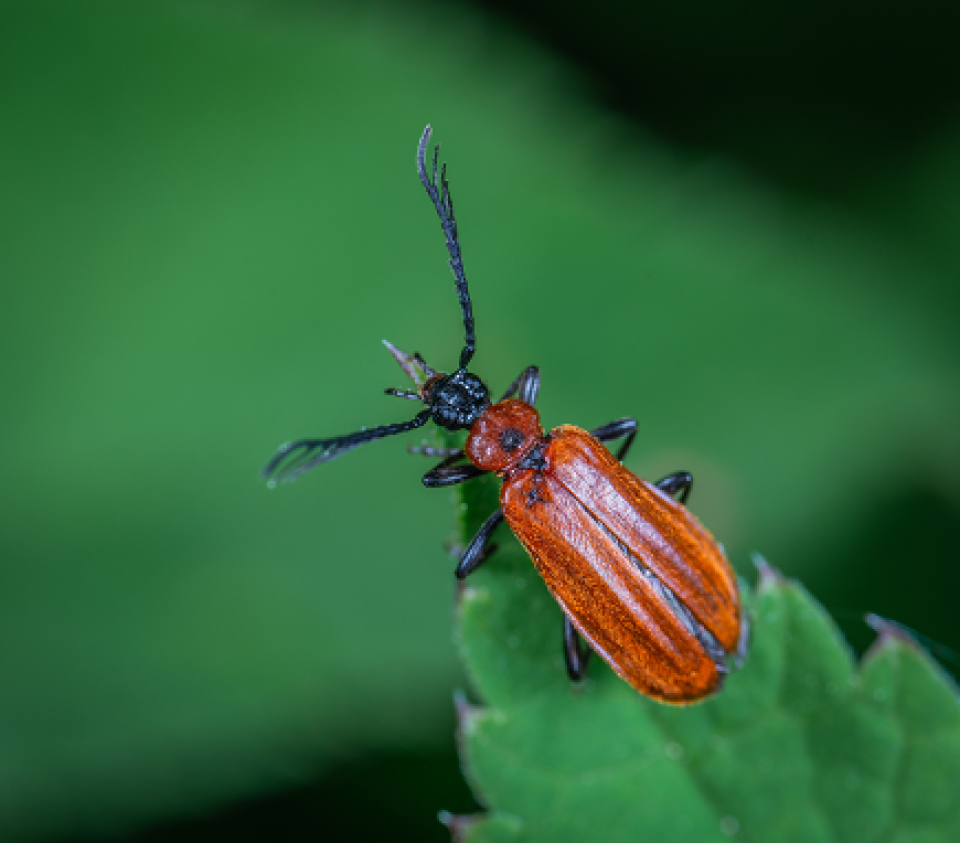
Developing environmentally friendly pesticides to protect the world's food supply
Researchers at Swansea University have discovered environmentally friendly alternatives to current chemical pesticides, working with industry to develop new products to manage pests and protect crops.
Many chemical pesticides have been withdrawn or had their use restricted because of the harm they cause to humans and the environment. In addition, many crop pests and pests of stored produce have developed resistance to conventional chemical pesticides.
As a result, globally important crops are at risk, and growers urgently need new pesticides that are safe and effective.
Finding an alternative to chemical pesticides
A team from Swansea University researched the risk and suitability of an insect pathogenic fungus, Metarhizium brunneum and its volatile organic compounds (VOCs) as an alternative to conventional chemical pesticides.
The team found that M. brunneum was effective in controlling a wide range of invertebrate crop pest impacting on food security, including weevils, whitefly, red spider mite and thrips. Furthermore, neither the fungus nor its secondary metabolites accumulate in the environment. These findings, suggested that M.brunneum was unlikely to pose a risk to humans, non-target species or the environment.
The team's research also showed that M. brunneum produces VOCs which, depending on dose and formulation, could be used to kill or manipulate the behaviour of many soil pest species, including plant-parasitic nematodes (thread-like roundworms that feed on plants), slugs and snails, wireworm and corn rootworm all of which cause significant crop losses worldwide. The VOCs were short-lived, left no residues, appeared to be non-toxic to plants, offering a safer alternative to conventional chemical fumigants.
Developing new products
The research team licensed the intellectual property to Certis Europe BV for them to develop M. brunneum VOCs as new pesticides
Based on the team’s work, Certis Europe BV created three new pesticides:
- A fumigant that kills plant parasitic nematodes
- A molluscicide that kills slugs and snails
- A repellent that prevents pests such as slugs, snails and insects from attacking crops or stored produce.
They also developed a new programme to manage soil pests.
As well as allowing companies to update and renew their products, the team's research allowed distributors to find new markets.
Streamlining the registration process for microbial biopesticides
Professor Butt and his team have played a key role in supporting regulatory authorities to review and streamline the registration process for microbial biopesticides.
Working with lead risk assessor for The Netherlands, Professor Butt reviewed the risk assessment process necessary to register M. brunneum as safe to sell on the open market. They found the process was unnecessarily long and complicated, and made recommendations to industry and regulators to help to make the process more efficient.
Professor Butt also worked with the International Biocontrol Manufacturers Association (IBMA), which represents around 250 companies worldwide that aim to develop and sell environmentally friendly biopesticides. The team’s research has enabled the IBMA to advocate with European regulatory authorities to develop a proportionate risk assessment approach for biopesticides. The team is also working with the IBMA to inform stakeholders of the latest research findings, identify partners for collaboration and share information on new products and strategies that could increase their competitiveness.
Professor Butt continues to work with European partners on reducing the regulatory burden around metabolites, and with industrial partners to discover and test new biocontrol agents and develop innovative pest control strategies.
Research team
Professor Tariq Butt, Associate Professor James Bull, Salim Khoja and Esam Hameed Hummadi.
